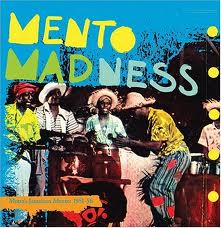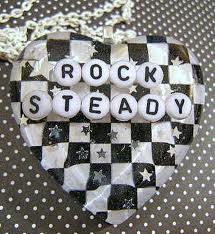History Of Reggae And Jamaican Musical Genres
The history of reggae music can be seen throughout the world by its mark on the musical compositions of John Legend, Rihanna, Wycliff, Laura Hill, the Rolling Stones, Sir Paul McCartney, Eric Clapton, Stevie Wonder, and others.
Reggae music has crossed language barriers, broken down race and class lines, brought peace among political foes and have also dissolved religious differences.
The universal appeal and acceptance of the unique sound of reggae have Jamaica's recording studios compared to Nashville.
The Early Beginnings of Jamaican Music - Mento
Before reggae, Mento was the music of the slaves that came from African. This music emphasis is on drumming, it was used in earlier times almost as a language, it told stories and you felt the rhythm deep within your soul.
Also the slaves used the drumming to communicate with each other.
Jump forward to the early 1950 when the love of Mento gained popularity in the rural areas where crowds would get together for lively dances in the pre-radio days and have fun.
Those
get-together would have bands consisting of rhumba box, an adaptation
from the African thumb piano, bongo drums, guitars and shakers.
This was the time to have fun, be creative and enjoy your neighbors and friends, it was more a communal affair.
Rhythm And Blues
Then a powerful radio station from the southern part of the United States started playing exciting dancehall beat music, that was called rhythm and blues, and these were the music of Fats Domino, Roscoe Gordon. It became the rage in Jamaica.
But the beat of rhythm and blues
put the stress on the second and fourth beats of the musical measure,
the after beat, almost like mento. So musician put together this new
beat and incorporate these musical sounds of the guitar and organ and
then later the bass.
1960-1970 - Reggae Evolution

Then came reggae evolution and you ask what is reggae? The history of reggae was influenced by the music of different eras, genres and cultures.
It was the reggae revolution from the late 1960s to the early 1980s, along with Bob Marley's international exposure that put Jamaica and Jamaican music on the map and made it distinctly different from any other Caribbean hotspots.
1960 - Ska Was Born
You could say the Skatalites, a Jamaican leading jazz band of the early 1960s created Ska. A sound that was largely horn driven, fast and oh so sweet.
This jazz band altered the American R&B sound with indigenous musical elements drawn from mento, drumming known as nyahbinghi and other African Jamaican religious music starting on the road to reggae.
1966 - Rocksteady
This sound placed more emphasis on the syncopation of the drum and bass with not a lot of horns, a slower and a more refined version of ska.
Singers singing
about life in poetry, articulating what the instrumentalist could not
say, so musicians took a back seat to vocalists.
Rocksteady was created.
This sound created great vocal stylists such as Ken Booth, Bob Andy, John Holt, Alton Ellis, The Wailers, but enjoyed wide popularity for only a short time.
1968 - Reggae
Reggae distinctive sound came into being in 1968 by reggae's leading stars Desmond Dekker, Toots and the Maytals, Jimmy Cliff and Bob Marley and the Wailers. And this sound went international in the 1970's by reggae's greatest ambassador Bob Marley.
 |
Though
reggae is mostly associated with Rastafarian it is really a mixture of
lovers rock - the style created in the UK with emphasis on the romantic
themes; and also with rockers and dancehall style.
The Next Phase of The History Of Reggae
But the evolution of Jamaica reggae music into its next phase is still waiting in the wings. So come visit us and enjoy these conscious sounds at Jamaica reggae music vacation.
Return From History Of Reggae To What Is Reggae
Write A Review About Reggae
Write a review of what reggae means to you, or your love of the music or about your special reggae artist.
Do you know of an upcoming talented music artist that you'll like to write about!
Share your memories and story here.








New! Comments
Have your say about what you just read! Leave me a comment in the box below.